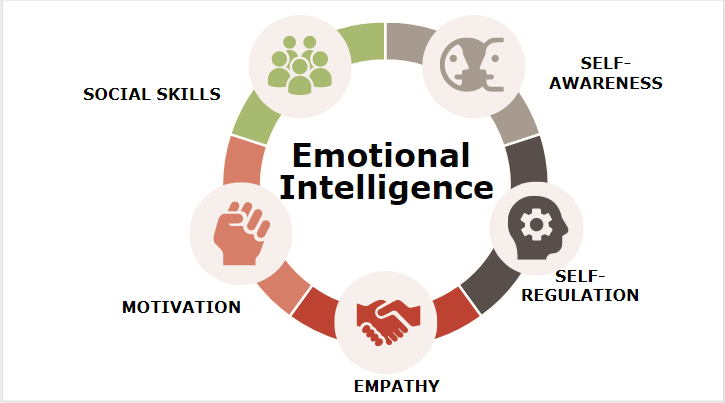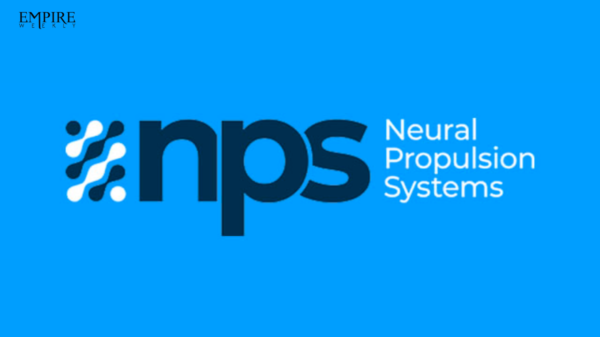Emotional Intelligence (EI) is the combination of managing your own emotions and influencing people around you. Though John Mayer and Peter Salovey first used this term in 1990, it was popularized later on by Daniel Goleman in 1995 through his book Emotional Intelligence. EI is an essential component of leadership skills as it gives humility and self-awareness to readers and the people around them.
It can help in increasing efficiency and increasing efficiency and integrity in the environment. It gives new perspectives to people to look in multi-dimensional ways at their problems and gives them new logic and ways to overcome their barriers. Nelson Mandela is one of the emotionally intelligent leaders. He described emotional intelligence as:
“If you want the cooperation of humans around you, you must make them feel they are important, and you do that by being genuine and humble.”
1. Importance of Emotional Intelligence for Leadership
Emotional intelligence can bring people together regardless of their race and vision. A leader with high EI can influence the people around him. It helps regulate and control not only one’s emotional outcomes but others. Therefore, EI is a fundamental ability of all great leaders in history. It can help leaders recognize others’ perspectives and effectiveness. However, intelligence quotient (IQ), communication skills, and leadership aptitude are important. Still, these skills can only be meaningful if EI is put forward as a key leadership quality. Scientists believe that EI can be acquired through proper training and outcomes.
2. Benefits of Emotional Intelligence
If political and socio-economic leaders develop negative behavior in the environment, their emotional intelligence and the surrounding people are also prone to threat. A true leader promotes growth, innovation, and integrity through positive societal creation. The leader puts himself in the shoes of others and develops efficient outcomes. The key benefits of EI are given as follows:
- Positive work environment
- Increase the efficiency of people
- Increase productivity of employers
- Making right decisions
- Strong cooperation between a leader and his people
- Relieve people from pain
- Reducing others stress
- Effective communication
- Overcoming barriers
- Efficient self-awareness and self-control
3. Factors Affecting EI in Leadership
When you recognize how you encounter those emotions, you can better understand people around you who cater to those emotions. Through your leadership skills, you can see through people and can give them suggestions to minimize their unproductive emotions and maximize their productive emotions.
Furthermore, this can lead you to be a fair leader. People will feel more satisfied working around you. You will demonstrate practical ethics and skills that can uplift the organization.
Daniel Goleman reported that EI consists of the following factors:
- Create Self-awareness
- Promote Self-management
- Cater Social Awareness/skills
- Give motivation
- Harness Empathy
From mastering your emotions to becoming a boss of your own, a leader can be poise and will promote a positive culture in the workplace. If the environment is toxic, there are more chances of the society being underdeveloped as it needs to have true leadership quality-EI to prosper further.
4. Steps to Develop Emotional Intelligence
Leaders have the EI to motivate people around them and help them determine their purpose. The people get on the track to success because of highly emotionally intelligent leaders. If everyone is on the right track of work, this can put forward an effective atmosphere in the community of leaders. People will try out their best ability and reason themselves for being the “Social Innovators” of society. Samaritans CEO reported emotional literacy as a key factor for people’s environmental well-being. Leaders can take the following steps to improve emotional intelligence:
- Promote a positive culture in the workplace.
- Minimize haste decisions.
- Think logically while making any decision.
- Put yourself in other shoes while deciding on others.
- Engage yourself in critical thinking with employers.
- Keep consistency as a key factor in working culture.
- Welcome constructive feedback.
- Take critics as a road to optimistic behavior.
- Addressing the emotions of employees behind the problems.
- Give others space to express themselves well.
- Be a good listener.
- Promote teamwork by actively sharing rewards, incentives and certificates, and holidays.

However, EI is used for both good and evil perspectives. A good leader with high EI will never use others’ knowledge to optimize his gains and benefits. The epitome of EI to the darker side can lead to the destruction and devastation of a person and society. So, it is crucial to master the steps of EI only to promote a positive environmental outcome in society.




































